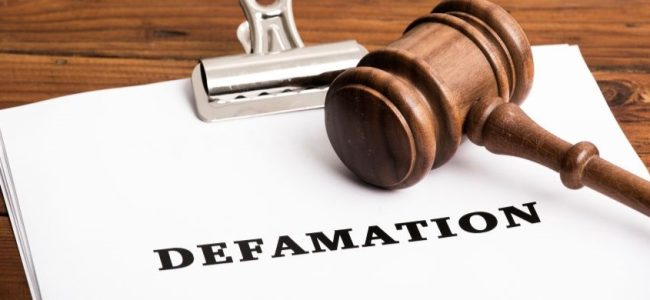BlogLine
Illinois court holds that alleged defamation does not fall into crime-fraud exception
3/5/24

In a case of first impression, the Illinois Appellate Court recently issued a decision finding that the crime-fraud exception to the attorney-client privilege does not apply to allegations of defamatory conduct by an attorney.
In MacDonald v. Wagenmaker, 2024 IL App (1st) 230089, the plaintiff sued an attorney and her law firm for defamation, civil conspiracy, and aiding and abetting defamation. The plaintiff was the former pastor of a church who had been terminated for his allegedly inappropriate behavior and misuse of funds. The church retained the defendant attorney and her law firm following the termination to evaluate the church’s corporate structure and finances, and to make recommendations. The firm retained an accountant to perform a forensic accounting of the church’s finances. The firm issued a report to the church elders painting the plaintiff’s leadership in a negative light and concluding he had misused church funds. The church published the law firm’s letter on its website as well as the accountant’s summary of its findings. Church elders also read a statement to the congregation summarizing the law firm’s report and the church posted a letter on its website explaining why it terminated the plaintiff.
The plaintiff sued the attorney, her law firm, and the accounting firm. The amended complaint alleged claims of defamation, false light, invasion of privacy, civil conspiracy, and aiding and abetting. The complaint alleged the report contained defamatory statements and that the defendant and her firm helped the church draft the statement read to the congregation and letter posted to the website.
In discovery, the defendant (and another law firm the church hired to defend the pastor’s wrongful termination arbitration) refused to turn over attorney-client communications. The trial court found the crime-fraud exception could apply to the torts alleged and without an evidentiary hearing held that the plaintiff’s allegations were sufficient to support an in camera inspection. After reviewing the communications, the trial court concluded the attorney-client privilege had been waived since it believed the church knew or strongly suspected it was about to commit a tort and that it enlisted its attorneys to assist in avoiding liability for defamation by not avoiding defamation but by looking at an ecclesiastical privilege. It ordered certain communications turned over but granted a friendly contempt finding.
The appellate court reversed. First, the appellate court found the trial court erred in ordering an in camera inspection without an evidentiary hearing. Relying on In re Marriage of Decker, 153 Ill.2d 298 (1992) and United States v. Zolin, 491 U.S. 554 (1989), the court held that plaintiff’s allegations were not “evidence” that the church sought its attorneys’ advice with the intent to defame plaintiff, the attorneys’ representation was anything other than good faith, or that the church know or should have known the statements were defamatory.
Second, the court found the crime-fraud exception did not apply to the plaintiff’s defamation claims. The court found that there were no allegations the law firm engaged in fraudulent conduct, but instead the allegations were “traditional defamation.” The court noted that the defamatory statements themselves were not fraudulent as they were not intended to induce plaintiff to act, and that plaintiff presented no evidence that plaintiff sought advice with the intent to defame him. The court feared that extending the crime-fraud exception to the claims at issue “would risk deterring clients from seeking legal advice, chilling lawyers from giving advice, and eroding the attorney-client privilege’s protection of legitimate communications.”
In addition to the decision’s important holdings, the case provides a good discussion of the law surrounding attorney-privilege, exceptions to the privilege, and the necessarily high burden that must be met for protected communications to be turned over in discovery.
For more information, please contact Michael Sanders at michael.sanders@fmglaw.com or your local FMG attorney.
Share
Save Print